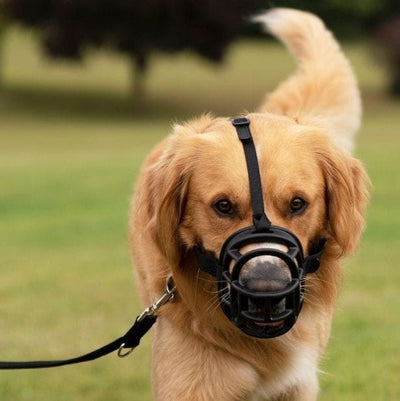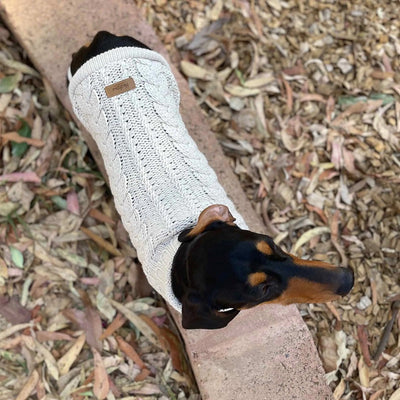 Are you in search of the perfect furry companion, but find yourself struggling with allergies? Look no further than the groodle! Groodles, also known as goldendoodles, are a popular hybrid breed that combines the intelligence and loyalty of golden retrievers with the hypoallergenic qualities of poodles. In this article, we will delve into the truth behind groodles as hypoallergenic pets, examining their unique characteristics and shedding light on whether they can truly be the ideal solution for allergy sufferers. We will explore the science behind hypoallergenic breeds, discussing the factors that contribute to their allergy-friendly nature. Additionally, we will provide practical tips and advice for potential groodle owners, ensuring they have all the information they need to make an informed decision. Join us on this journey as we uncover the truth about groodles and their potential to be the perfect hypoallergenic pet for you.
Are you in search of the perfect furry companion, but find yourself struggling with allergies? Look no further than the groodle! Groodles, also known as goldendoodles, are a popular hybrid breed that combines the intelligence and loyalty of golden retrievers with the hypoallergenic qualities of poodles. In this article, we will delve into the truth behind groodles as hypoallergenic pets, examining their unique characteristics and shedding light on whether they can truly be the ideal solution for allergy sufferers. We will explore the science behind hypoallergenic breeds, discussing the factors that contribute to their allergy-friendly nature. Additionally, we will provide practical tips and advice for potential groodle owners, ensuring they have all the information they need to make an informed decision. Join us on this journey as we uncover the truth about groodles and their potential to be the perfect hypoallergenic pet for you.
What are Groodles?
Groodles, also known as goldendoodles, are a crossbreed between a golden retriever and a poodle. They were initially bred in the 1990s with the aim of creating a dog that possessed the friendly temperament of a golden retriever combined with the hypoallergenic qualities of a poodle. The result is a lovable, intelligent, and playful companion that has gained popularity in recent years.
One of the main advantages of groodles is their hypoallergenic coat. Unlike many other dog breeds, groodles have a coat that is often referred to as wool or fleece. This means that they shed less and produce fewer allergens, making them a suitable option for individuals with allergies. Their curly or wavy hair does not easily fall out, reducing the risk of triggering allergic reactions. Additionally, groodles have a low dander production, which is another common allergen found in pet hair.
Groodles come in various sizes, ranging from standard to miniature and toy sizes. This makes them versatile and suitable for different living arrangements. Whether you have a spacious backyard or live in an apartment, there is a groodle size that will fit your lifestyle.
In summary, groodles are a crossbreed between golden retrievers and poodles, designed to combine the best qualities of both breeds. Their hypoallergenic nature, low shedding, and versatile sizes make them an appealing option for individuals with allergies.
Understanding Pet Allergies
Before we can fully grasp the hypoallergenic qualities of groodles, it's essential to understand pet allergies and what causes them. Contrary to popular belief, it is not pet hair itself that triggers allergies but rather the proteins found in pet dander, saliva, and urine. When these proteins come into contact with an allergic person's immune system, it can lead to various allergic reactions, such as sneezing, coughing, itching, and watery eyes.
Allergies can vary in severity, with some individuals experiencing mild symptoms while others may have more severe reactions. It's important to note that no dog breed is entirely hypoallergenic, as all dogs produce some level of allergens. However, certain breeds, like groodles, produce fewer allergens and are considered more allergy-friendly.
Hypoallergenic Pets: Fact or Fiction?
The term "hypoallergenic" is often used to describe dog breeds that are less likely to cause allergies. However, it is essential to understand that no breed can guarantee an allergy-free experience. The level of allergenicity varies not only between breeds but also among individual dogs within the same breed. This is because allergenic proteins can be influenced by several factors, including genetics, individual sensitivity, and the specific allergens involved.
While it is true that some dog breeds, including groodles, are considered more hypoallergenic than others, it is crucial to manage expectations. Hypoallergenic breeds may still trigger allergies in some individuals, especially those with severe allergies or sensitivities. It is always recommended to spend time with a groodle or any other hypoallergenic breed before making a decision to ensure compatibility.
The Hypoallergenic Qualities of Groodles
Now that we have a better understanding of pet allergies and the concept of hypoallergenic pets, let's explore the specific qualities that make groodles a popular choice for allergy sufferers.
Groodles can either have a fleece coat or a wool coat, which significantly reduces shedding. This means that there is less loose coat around the house, minimising the amount of allergens in the environment. Regular grooming, including brushing and bathing, can further reduce the amount of allergens present on a groodle's coat.
Another factor that contributes to the hypoallergenic nature of groodles is their low dander production. Dander, which consists of tiny skin flakes shed by animals, is a common allergen found in pet hair. Groodles have a lower dander production compared to many other breeds, making them a suitable choice for individuals with allergies.
Furthermore, groodles are known for their minimal odour, which can be beneficial for allergy sufferers. The absence of a strong scent reduces the likelihood of triggering allergic reactions in sensitive individuals.
In conclusion, groodles possess several qualities that contribute to their hypoallergenic nature.
Benefits of Owning a Groodle for Allergy Sufferers
Owning a groodle can bring numerous benefits to individuals who suffer from allergies. Here are a few advantages of having a groodle as a hypoallergenic pet:
1. Reduced Allergic Reactions: The hypoallergenic qualities of groodles can significantly reduce allergic reactions in allergy sufferers. Their low allergen production and minimal shedding make them a suitable choice for individuals with sensitivities.
2. Companionship and Emotional Support: Groodles are known for their friendly and affectionate nature. They form strong bonds with their owners and provide companionship and emotional support, which can be beneficial for individuals dealing with allergies.
3. Active Lifestyle: Groodles are energetic dogs that require regular exercise and mental stimulation. This can motivate allergy sufferers to engage in physical activities, improving their overall health and well-being.
4. Family-Friendly: Groodles are generally good with children and other pets, making them an excellent addition to family households. Their gentle and patient temperament makes them suitable companions for individuals of all ages, including those with allergies.
5. Trainability: Groodles are intelligent and eager to please, making them highly trainable. This can be advantageous for individuals with allergies, as training can help manage allergens and ensure a clean and allergy-friendly environment.
Tips for Managing Pet Allergies
While groodles are considered hypoallergenic, it is still important to take certain precautions to manage pet allergies effectively. Here are some practical tips for allergy sufferers considering owning a groodle or any other pet:
1. Consult with a Medical Professional: Before bringing a groodle into your home, consult with a medical professional who can assess your allergies and provide advice. They may recommend specific allergy medications or treatments to help manage your symptoms.
2. Spend Time with a Groodle: If possible, spend time with a groodle or a hypoallergenic dog breed before making a decision. This will help determine if you have any allergic reactions and if the hypoallergenic qualities of the breed are suitable for your allergies.
3. Regular Grooming: Regular grooming is essential for managing allergies. Brushing your groodle's coat frequently can help remove loose hair and dander, reducing the presence of allergens. Bathing your groodle regularly with a hypoallergenic shampoo can further minimize allergens on their coat.
4. Clean and Vacuum Regularly: Keeping your living space clean and free from pet hair and dander is crucial for managing allergies. Vacuuming carpets, using air purifiers, and regularly washing bedding can help minimize allergens in your home.
5. Create Allergy-Free Zones: Designate certain areas of your home as allergy-free zones where your groodle is not allowed. This can be particularly helpful for individuals who have severe allergies or sensitivities.
Remember, managing allergies requires a multi-faceted approach, and it's important to consult with a medical professional for personalised advice.
Choosing the Right Groodle for Your Family
When considering adding a groodle to your family, there are several factors to keep in mind to ensure the best match for your lifestyle and preferences. Here are some considerations when choosing the right groodle for your family:
Size: Groodles come in various sizes, including standard, miniature, and toy. Consider the space you have available and the activity level you can provide to determine the most suitable size for your family.
Energy Level: Groodles are generally energetic dogs that require regular exercise and mental stimulation. Consider your family's activity level and ensure you can meet the exercise needs of your groodle.
Temperament: Groodles are known for their friendly, affectionate, and social nature. However, individual groodles may vary in temperament. Spend time with potential groodles and observe their behavior to ensure compatibility with your family.
Training Needs: Groodles are highly intelligent and trainable, making them ideal for families who are committed to positive reinforcement training. Consider your training capabilities and willingness to invest time and effort into training your groodle.
Allergy Compatibility: While groodles are hypoallergenic, it is essential to spend time with a groodle before bringing one into your home. This will help determine if you have any allergic reactions and ensure compatibility with your allergies.
By considering these factors, you can choose the right groodle that will be a perfect fit for your family and lifestyle.
Where can I buy a groodle puppy in NSW?
If you're looking to bring a groodle puppy into your home, there are a few options to consider. One option is to reach out to local animal shelters or rescue organisations to inquire about any groodles available for adoption. This can be a wonderful way to provide a loving home to a dog in need.
Alternatively, you can also find groodle puppies for sale from time to timein our store. It's best to contact us for information on availability and future litters from our registered breeders. Additionally, we recommend reading The Advantages of Buying a Puppy From a Pet Store to learn more about the process that is involved on our store.
Caring for a Groodle: Grooming and Maintenance
Caring for a groodle involves regular grooming and maintenance to keep them healthy and comfortable. Here are some essential aspects of groodle care:
Grooming: Groodles require regular grooming to maintain their coat's health and minimize shedding. Brushing their hair a few times a week can help prevent matting and remove loose hair. Regular bathing, typically every 6-8 weeks, with a hypoallergenic shampoo is also recommended.
Ear Care: Groodles are prone to ear infections, so regular ear cleaning is important. Check their ears weekly for any signs of redness, odor, or discharge. Use a veterinarian-approved ear cleaner and gently clean their ears to prevent infections.
Dental Care: Dental hygiene is crucial for groodles' overall health. Brush their teeth regularly using a dog-specific toothbrush and toothpaste. Additionally, provide them with appropriate chew toys and dental treats to help maintain good oral health.
Exercise and Mental Stimulation: Groodles are energetic dogs that require regular exercise and mental stimulation. Daily walks, playtime, and interactive toys can help keep them physically and mentally engaged. Engaging in activities such as obedience training, agility, or even scent work can provide additional mental stimulation.
Healthy Diet: Providing your groodle with a balanced and nutritious diet is essential for their well-being. Consult with a veterinarian to determine the most suitable diet for your groodle based on their age, size, and activity level.
By prioritising grooming and maintenance, you can ensure that your groodle remains healthy, happy, and comfortable.
Alternative Hypoallergenic Pet Options
While groodles are a popular choice for individuals with allergies, there are other hypoallergenic pet options available. Here are a few alternative hypoallergenic pets to consider:
Poodles: Poodles are renowned for their hypoallergenic qualities. They come in various sizes, making them suitable for different living arrangements. Poodles require regular grooming and maintenance to keep their coats in top condition.
Bichon Frise: Bichon Frises are small, friendly, and hypoallergenic dogs. They have a curly coat that reduces shedding and dander. Regular grooming is necessary to prevent matting.
Portuguese Water Dog: Portuguese Water Dogs are medium-sized dogs known for their intelligence and agility. They have a non-shedding, hypoallergenic coat that requires regular grooming to prevent matting.
Devon Rex: If you prefer a hypoallergenic cat, consider the Devon Rex. They have a wavy coat that sheds less and produces fewer allergens. Regular grooming can help keep their coat in good condition.
Remember, before bringing any pet into your home, spend time with them to ensure compatibility with your allergies and lifestyle.
Groodles have gained popularity as a hypoallergenic pet option for individuals with allergies. While no breed can guarantee an allergy-free experience, groodles possess several qualities that make them more suitable for individuals with sensitivities. Their hair instead of fur, low dander production, and minimal shedding contribute to their hypoallergenic nature. However, it is important to manage expectations and consult with a medical professional before bringing a groodle or any other pet into your home. By considering factors such as size, temperament, and energy level, you can choose the right groodle that will be a perfect fit for your family. With proper grooming, maintenance, and care, groodles can provide companionship, love, and joy to individuals with allergies. So, if you're in search of a furry companion but struggle with allergies, a groodle may just be the perfect hypoallergenic pet for you.
© weknowpets 2023





